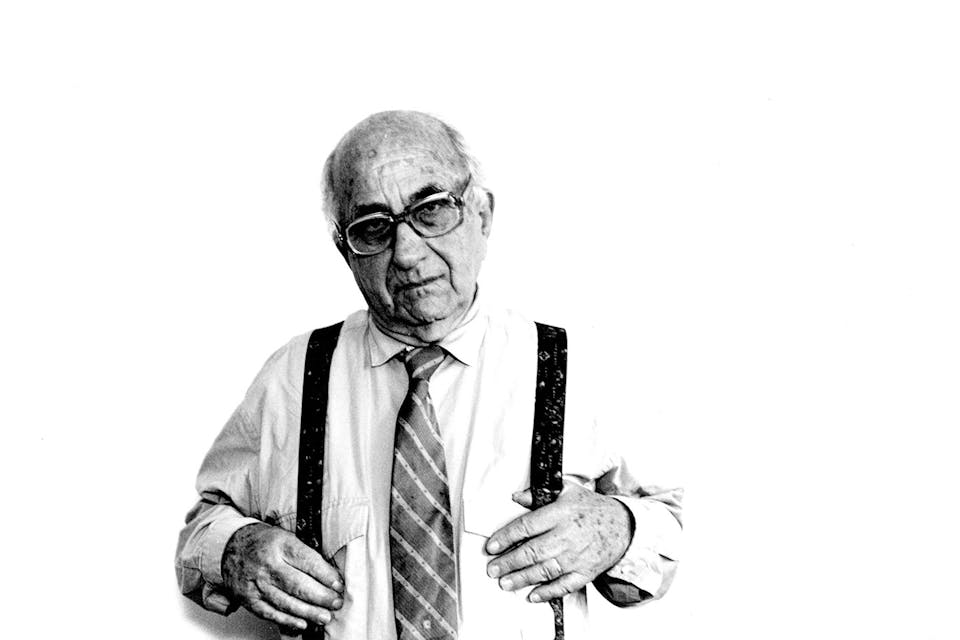
January 10, 2022
The Voice Emil Fackenheim Heard
The Jewish philosopher heard in the silence of the Shoah’s victims a voice issuing a 614th commandment to the Jews. Was he right?
On November 11, 1938 Emil L. Fackenheim found himself in a jail cell in his hometown of Halle, Germany, a city that briefly made headlines in 2019, when a gunman attacked its synagogue on Yom Kippur, and killed two people. An oppressive quiet pervaded the small holding cell, constructed to accommodate “at most six people but now crowded with twenty-odd Jewish men” who had been rounded up over the past two days, until an elderly man broke the silence, and voiced a question that was surely on the minds of all: “You, Fackenheim! You are a student of Judaism. You know more about it than the rest of us here. You tell us what Judaism has to say to us now!”
Though a precocious young rabbinical student, Fackenheim remained silent; despite having spent the last three years studying with the leading lights of Jewish thought at the Hochshule für die Wissenschaft des Judentums, the preeminent college for Judaic Studies in Berlin. The events of the previous 48 hours left him speechless. Kristallnacht had shattered so much, so quickly: the fury of destruction that burned synagogues across Germany, desecrated Torah scrolls, smashed and looted Jewish stores, had in that one fateful evening ended, in Fackenheim’s words, “the 1,000-year history of German Jewry.” Though the conflagration was only beginning and unimaginable horrors were yet to come, “the soul of German Jewry was destroyed in that single night, when houses of worship from which prayers had soared heavenward, in many cases for centuries, were burned down.” Despite his desire to speak comforting words, Fackenheim was dumbfounded—like so many, reduced to stunned silence. In the face of such destruction, what could one say? All his learning, erudition, and scholarship seemed woefully inadequate in the face of such events.
Fackenheim would spend the next three months struggling to endure the physical hardship and spiritual degradation of Sachsenhausen, before being granted a brief reprieve thanks to the promise of work in America and the possibility of attaining an exit visa. With six weeks to leave the country on pain of being thrown back into the hell of concentration-camp life, Fackenheim raced to procure the necessary papers and to make arrangements for his parents and siblings to follow. He would soon make his way to Aberdeen, Scotland, and then to Toronto, where he received a PhD in philosophy and would remain for the next 40 years, first serving as a congregational rabbi and then teaching German philosophy at the University of Toronto. In 1984 Fackenheim made aliyah, realizing a long-deferred hope to settle in the Land of Israel. He died in 2003.